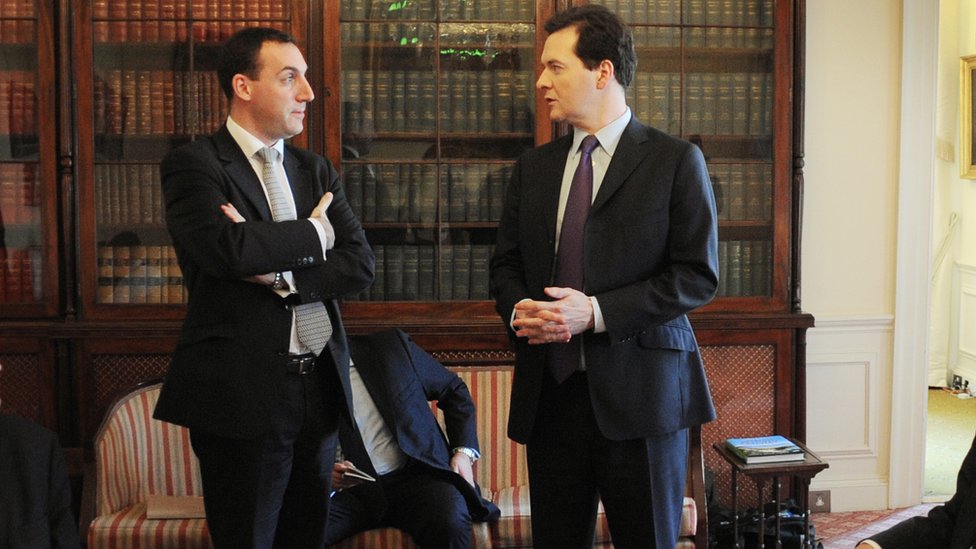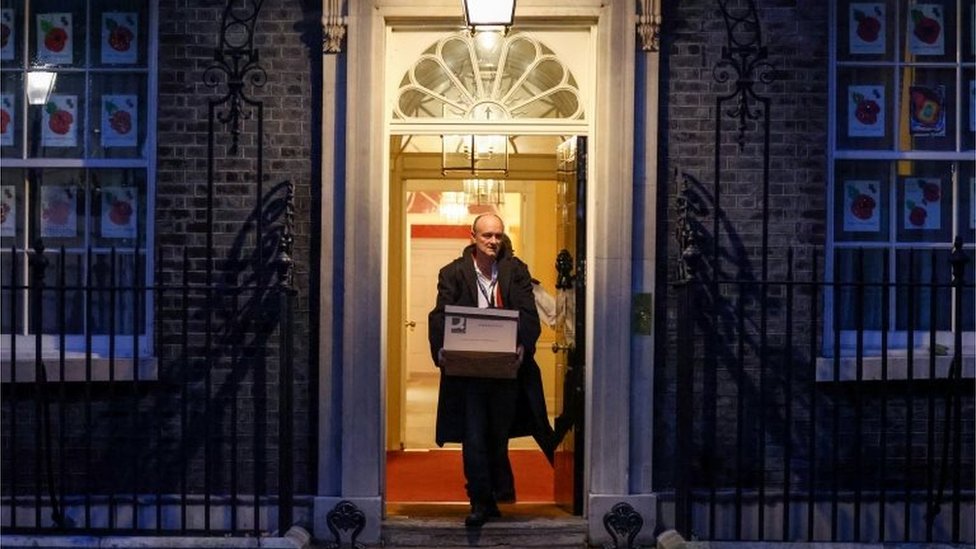
As I have warned you before, if the intrigue of Westminster personnel moves is not your thing, look away now.
If, however you are interested in the people who have an influence on how decisions are made that affect us all, keep reading!
It won't have escaped your notice that, as well as the enormity of the problems of the government's finances, the ongoing health consequences of the pandemic we are living through, rather than stability, the running of the government itself has been in turmoil in recent times.
Now on Thursday, after weeks of chatter about who might be brought in to create order, No 10 has announced that a former Treasury official, Dan Rosenfield, will start work as the prime minister's chief of staff in January.
It is a fascinating appointment (again, if this isn't your thing, I understand why you might not give two hoots), for a whole host of reasons.
First off, much of the clamour in the Tory Party for a new character in the No 10 drama was someone to understand the Tory Party more.
Dominic Cummings and Lee Cain were always criticised for being Brexiteers rather than Conservatives, never having the interests of the Tory party at heart, or a real understanding of its particular ecosystem.
A former government official who does not have any links with the party is not going to answer that question.
Second, he hails most recently from a consulting firm that does work for top flight corporate firms, before that he worked in banking and the Treasury.
Without any comment on what his own particular views may be, the Treasury was always considered the bastion of resistance in Whitehall to Brexit. Fairly or not, it was often seen as the obstacle to dramatic change.
The Treasury's fans believe it is rightly the most important government department, that attracts the best brains and is often a vital brake on spending splurges and ministers' crazy ideas.
Its detractors complain it pursues orthodoxy rather than creativity and stands in the way of important reform.

There is no doubt that Mr Rosenfield will arrive in Downing Street with a great CV.
In his early 40s, he's been widely praised by those who have come across him.
Friends say he is "very straightforward, blunt, in a good way, loves Man United and a beer. He was hugely respected at the Treasury, and gets stuff done."
Another senior Whitehall figure lavished him with praise suggesting after the last few months of chaos, "if anyone can sort it out, then he's the man."
The rise of the very capable Whitehall apparatchiks?
But his appointment and return to SW1 along with Simon Case, as the cabinet secretary, could be seen as the ascendancy of the rising generation of very capable Whitehall apparatchiks who helped steer the country through the last financial crisis.
Mr Rosenfield worked successfully with Alistair Darling, and then George Osborne too, before leaving for the private sector.
He will come into government as a special adviser, a political appointment, rather than a civil servant.
But this is a very, very long way from the early promises of this government that suggested it wanted to rewire Whitehall and drive through significant reform. One senior government official joked privately that they had banned the word reform.
Another insider suggested, "for a government that wants to challenge the elite and the establishment - they now have the same very good civil servants who have been running the country for at least the past decade."
'Chaos machine'
The Vote Leave tribe used to delight in making the 'right people' unhappy as they saw it. For them, with some of their members out of government, the 'wrong people' are now happy.
But as ever, focus on the personnel who surround a leader is worthwhile, but rather absolves them from a role.
Whether the new chief of staff can help put the government on a smoother keel rather depends on whether the prime minister himself is willing to listen, or perhaps wants to allow himself to be managed.
A senior Conservative who was involved in discussions about the role suggested the appointment of a former official meant Boris Johnson didn't want to be bossed, or to be challenged - he had no interest in appointing a chief of staff who had a political weight of their own, who could take him on in arguments as an equal.
When one of the few who knows him well describes Mr Johnson as a 'chaos machine', the question is not perhaps whether the new chief of staff has the pedigree and the ability to run a smooth machine, but whether the most senior politician really wants that to be a priority.
After more episodes of soap opera than you may care to remember it will be fascinating to see what happens next.
https://news.google.com/__i/rss/rd/articles/CBMiL2h0dHBzOi8vd3d3LmJiYy5jby51ay9uZXdzL3VrLXBvbGl0aWNzLTU1MDk2NjU20gEzaHR0cHM6Ly93d3cuYmJjLmNvLnVrL25ld3MvYW1wL3VrLXBvbGl0aWNzLTU1MDk2NjU2?oc=5
2020-11-26 23:20:00Z
52781208800305
Tidak ada komentar:
Posting Komentar